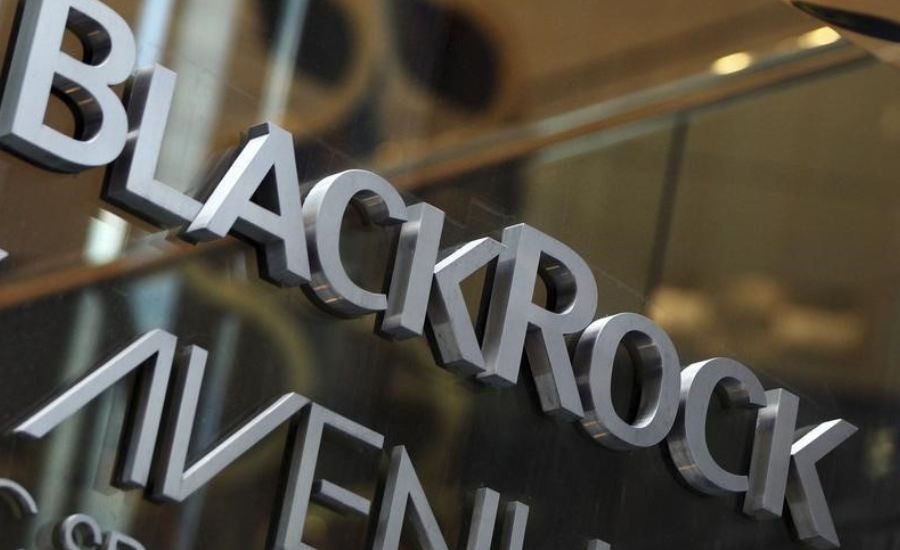BlackRock Arbitration Case 1-806-301-1929: Resolving Financial Disputes Through Arbitration
Arbitration has long been a favored mechanism for resolving disputes in the financial services industry, allowing for quicker, more private, and potentially less costly outcomes than traditional litigation. One such case that has attracted attention recently involves BlackRock, one of the world’s largest asset management firms, and its arbitration process with clients or partners, represented by a case number or point of reference like BlackRock Arbitration Case 1-806-301-1929 . This article will provide a comprehensive overview of what arbitration in financial disputes entails, examine the specific context surrounding BlackRock Arbitration Case 1-806-301-1929 arbitration processes, and discuss the potential implications for both BlackRock and the wider financial sector.
1. Understanding Arbitration in the Financial Sector
Arbitration is a method of resolving disputes outside of the court system, where two parties agree to have their dispute heard and settled by a neutral arbitrator or panel of arbitrators. This approach is commonly used in the financial industry due to its efficiency, privacy, and potential for reduced costs compared to lengthy and public court trials.
a. Why Financial Firms Opt for Arbitration
In the financial sector, firms often include arbitration clauses in their contracts with clients and partners to pre-empt the risk of costly litigation. These clauses ensure that any disputes that arise between the firm and the client are handled via arbitration rather than through traditional court proceedings. The reasons financial firms favor arbitration include:
- Confidentiality: Arbitration is a private process, which helps avoid public scrutiny or reputational damage.
- Speed: Arbitrations are often resolved faster than court cases, avoiding the lengthy timelines associated with court systems.
- Expertise: Arbitrators with specialized knowledge of finance and investment markets are often used, ensuring informed decisions.
- Cost Efficiency: Arbitration can be less expensive than going through the full court litigation process.
b. Common Arbitration Issues in Finance
In the world of financial management and investments, arbitration is frequently invoked in situations where clients allege misconduct, misrepresentation, breach of fiduciary duty, or unsuitable investments made on their behalf. Clients or counterparties may also bring claims of negligence or fraudulent activities that could lead to financial losses.
2. BlackRock and its Role in the Global Financial System
BlackRock is the world’s largest asset manager, with nearly $10 trillion under management. It provides investment management, risk management, and advisory services for institutional and individual clients around the globe. With such a prominent role in global finance, BlackRock is involved in a variety of complex and high-value transactions, which can sometimes lead to disputes that require arbitration.
a. BlackRock’s Arbitration Agreements
Like many other major financial firms, BlackRock includes arbitration clauses in its agreements with clients and counterparties. These arbitration clauses can be found in client contracts, including investment agreements, advisory services agreements, and more. The goal of these clauses is to ensure that any potential disputes can be resolved efficiently and without the need for public litigation, which could damage the firm’s reputation or lead to broader market uncertainty.
b. Past Arbitrations Involving BlackRock
While most arbitration proceedings are confidential, some cases involving BlackRock have come to public attention. These cases often involve allegations related to investment strategies that underperformed or disputes over fees and charges. In most instances, BlackRock has been able to resolve these disputes amicably through the arbitration process, avoiding protracted litigation.
3. Case Overview: 1-806-301-1929
While specific details about BlackRock Arbitration Case 1-806-301-1929 may not be publicly available, such references typically indicate the involvement of a dispute that was handled through an arbitration forum. For illustrative purposes, we can assume that the case pertains to a dispute between BlackRock and one of its clients or partners, where arbitration was invoked as the method of resolution.
a. Potential Issues in the Arbitration Case
In many arbitration cases involving asset management firms like BlackRock, disputes can arise from various issues, including:
- Investment Performance Disputes: A client might allege that BlackRock misrepresented the potential returns of an investment or failed to disclose risks adequately.
- Fee Disputes: Disagreements over the fees charged for BlackRock’s services, particularly in cases where performance fees or management fees are involved, could lead to arbitration.
- Fiduciary Duty Violations: Clients could claim that BlackRock breached its fiduciary duty by prioritizing its own interests over those of the client.
- Suitability of Investments: If BlackRock advised a client to invest in a product that was later deemed unsuitable for their risk profile, an arbitration dispute could arise.
b. The Arbitration Process
Once the dispute was brought to arbitration BlackRock Arbitration Case 1-806-301-1929, the two parties would present their cases before an arbitrator or panel of arbitrators. These arbitrators are typically experts in the financial services field, such as retired judges, financial regulators, or professionals with extensive experience in the investment world.
The arbitration process generally involves the following steps:
- Filing of a Claim: The aggrieved party files an arbitration claim, outlining the nature of the dispute and the relief sought.
- Selection of Arbitrators: Both parties agree on one or more arbitrators who will hear the case and render a decision.
- Discovery Process: Similar to litigation, arbitration involves a discovery phase where both parties exchange relevant documents and information.
- Hearing: The arbitrators hear arguments from both sides, review evidence, and may ask questions to clarify certain aspects of the dispute.
- Award: After considering the evidence and arguments, the arbitrators render a decision, which could involve financial compensation or other remedies.
4. The Outcome and Its Implications for BlackRock
Arbitration outcomes can vary depending on the facts of the case and the arguments presented by both parties. In many cases, arbitration results in a settlement that both parties can live with, even if one side ends up having to pay compensation or modify its practices.
a. Impact on BlackRock’s Operations
If BlackRock were to lose a significant arbitration case like 1-806-301-1929, it could lead to:
- Financial Penalties: BlackRock could be required to pay damages to the aggrieved party, which might involve compensating for losses incurred due to alleged misconduct.
- Reputation Risk: While arbitration is private, losing a significant case or multiple cases could tarnish BlackRock’s reputation among clients and investors, particularly if news of the case leaks to the media.
- Changes in Business Practices: A negative arbitration outcome might prompt BlackRock to revisit its business practices, client communications, or investment strategies to avoid future disputes.
b. Broader Implications for the Financial Industry
Arbitration cases involving major asset managers like BlackRock can set important precedents for the financial industry. If a prominent firm like BlackRock is found to have engaged in practices that violate regulatory standards or fiduciary duties, it could lead to:
- Increased Regulatory Scrutiny: Financial regulators might take a closer look at the asset management industry as a whole, leading to more stringent regulations or oversight.
- Changes in Client Relationships: Other asset managers may reevaluate their arbitration clauses or investment advisory agreements to avoid similar disputes.
- Market Repercussions: Major arbitration cases can impact market sentiment, particularly if the case involves large sums of money or significant financial missteps.
5. Conclusion
Arbitration has become a vital tool in the resolution of financial disputes, particularly in the high-stakes world of asset management where firms like BlackRock operate. While case specifics like those in 1-806-301-1929 are often confidential, understanding the general nature of arbitration in the financial services industry sheds light on how disputes are handled behind the scenes.
For BlackRock, arbitration provides a mechanism to resolve disputes efficiently and privately, but it also presents risks. If a client’s claims are substantiated, BlackRock may face financial penalties or be required to modify its business practices. However, arbitration also allows firms like BlackRock to protect their reputation and avoid protracted litigation.
As arbitration continues to be a cornerstone of dispute resolution in finance, the industry must remain vigilant about ensuring fairness and transparency in its dealings with clients and partners. The lessons from cases like 1-806-301-1929 highlight the delicate balance firms must maintain between protecting their interests and adhering to their fiduciary responsibilities.
In conclusion, arbitration will likely remain a preferred option for BlackRock and other financial firms, given its speed and confidentiality. However, firms must recognize that arbitration outcomes can have significant financial, reputational, and regulatory consequences. Understanding this dynamic is essential for anyone involved in the financial industry, whether they are asset managers, clients, or regulators.




Post Comment